Full Curriculum
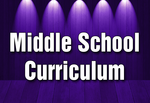
Middle School
This is a curriculum for a scene study semester at the middle school level. The goal for each unit is to build off the knowledge and skills gained in the previous unit so students are gradually adding to their abilities as they progress through different types of scene performance assessments.
Students begin with the acting basics they need to create a successful scene: ensemble skills, improvisation, projection, vocal clarity and expression, characterization, pantomime, objective and tactics. They will learn script structure, blocking, and stage directions and how to give, receive and apply feedback. They will explore aspects beyond acting such as directing and simple set design.
9 Units
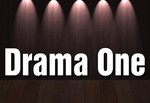
Drama One
This is a curriculum map for a comprehensive theatre class. The purpose of the curriculum is to give students an overview of theatre in general. The super objective of this course is to have students “bring it all together” at the end in a culminating project.
The essential questions for the year:
* What are the most important tools of the actor?
* Who’s who in the theatre?
The answer to the first question is mind, body, and voice. Each unit reflects one of those tools: pantomime—body, improvisation—mind, etc. The answer to the second is explored throughout the curriculum.
15 Units
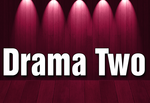
Drama Two
The Drama Two Curriculum is performance based. It has been developed to expand and deepen the students’ skills as artists. They will do so by building on material covered in the Drama One Curriculum, with units in: Character Analysis, Monologue Writing and Performance, Shakespeare Performance, and Design. The curriculum will culminate in a Devised Class Play.
8 Units
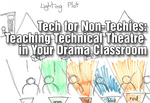
Technical Theatre Mini Units
This collection of technical theatre mini-units will give you the opportunity to introduce lighting, sound, costuming, staging, and makeup into your program. Each mini-unit can be used independently, or you can build one upon the other toward the culminating project.
These units were developed with middle school students (grades 6 to 8), and can also suit an introductory level high school class in tech theatre.
7 Units
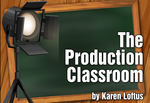
Production Classroom Units
Producing a show together as a class is the ultimate in both project-based learning and using higher-order thinking skills. Students will gain experience in working in a group, time management, conflict resolution, and other interpersonal skills necessary to working as part of a creative team.
By breaking down the production process into specific sections, you can ensure that your students have the necessary skills to produce a successful show. In addition, whereas trying to take a show from audition to performance usually feels rushed, The Production Classroom allows you to really dive deep into the production process. These units could easily be spaced out over the course of a semester or over the course of an entire year.
5 Units
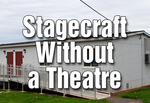
Stagecraft Without a Theatre
Instructor Karen Loftus has an impressive stage management resume, but she has also taught Stagecraft in a portable classroom. There was no lighting grid, no sound equipment, no place to build sets, props or costumes. This experience led to this curriculum: Stagecraft without a Theatre.
Through exposure, exploration, and project-based learning, students identify and understand the various areas of technical theatre including scenic design, lighting, sound, costumes, and makeup.
The curriculum culminates with a project where students work in groups to design and plan technical elements as they would for a production, and then simplify those designs to work in a classroom setting: Stagecraft without a Theatre.
14 Units
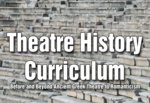
Theatre History
There are many ways to build a curriculum for the drama classroom. One of them is to base each unit in an era of theatre history and have students apply what they learn in a theatrical manner. This theatre history curriculum starts with Ancient Egypt, Sanskrit drama, and Indigenous storytelling, then moves on to Ancient Greek theatre, and ends with 19th century Romanticism. Feel free to adapt the units in this curriculum to fit your students and your situation. Or pick and choose different units to supplement your program.
The goal of this curriculum is to focus on how students learn, how they plan, and strategies for their learning, and what social and emotional skills can be applied through discussion and effective and efficient group work.
Refer to the Distance Learning guide for ideas on how to adapt this curriculum to a remote teaching or hybrid environment.
11 Units
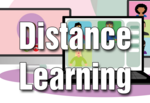
Distance Learning
Distance Learning is defined as synchronous activities in an online class session, with some asynchronous assignments to be completed and submitted.
The curriculum offers the following units in a distance learning format. All of these units exist in a traditional drama classroom form on the Drama Teacher Academy site.
12 Units
Units
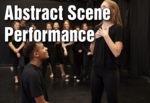
Abstract Scene Performance
By Annie Dragoo
5 Lesson Plans
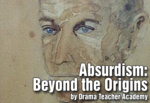
Absurdism: Beyond the Origins
By Drama Teacher Academy
6 Lesson Plans
NEW

Acting for the Camera
By Ruthie Tutterow
4 Lesson Plans

The Actor in Transition: From Presentational to Three-Dimensional
By John Minigan
6 Lesson Plans
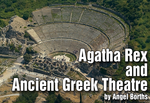
Agatha Rex and Ancient Greek Theatre
By Angel Borths
10 Lesson Plans

Alexander Technique
By Ruthie Tutterow
3 Lesson Plans
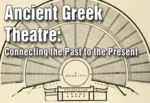
Ancient Greek Theatre
By Lindsay Price
8 Lesson Plans
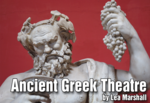
Ancient Greek Theatre - It's All Greek to Me! *Hyperdoc
By Lea Marshall

Anti-Realism
By Wendy-Marie Martin
7 Lesson Plans
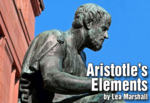
Aristotle's Elements
By Lea Marshall
12 Lesson Plans
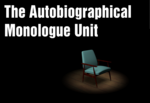
The Autobiographical Monologue
By Gai Jones
4 Lesson Plans

Blood, Blisters & Bruises Makeup
By Matt Webster
5 Lesson Plans
NEW
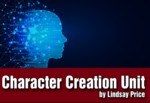
Character Creation: Superhero Series: Multi platform
By Lindsay Price and Kerry Hishon
6 Lesson Plans

Character Development with an Indigenous Perspective
By Allison Green
4 Lesson Plans
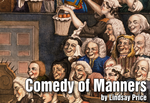
Comedy of Manners
By Lindsay Price
5 Lesson Plans
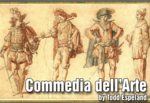
Commedia dell'Arte
By Todd Espeland
14 Lesson Plans

Copyright *Hyperdoc
By Lindsay Price
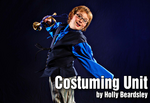
Costuming
By Holly Beardsley
6 Lesson Plans

Tech Theatre Unit: Costuming When You Don't Sew
By Drama Teacher Academy
6 Lesson Plans
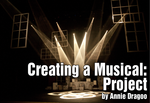
Creating a Musical: Project
By Annie Dragoo
6 Lesson Plans
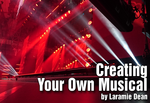
Creating Your Own Musical
By Laramie Dean
17 Lesson Plans

Decolonizing Monologues
By Nicholas Pappas
3 Lesson Plans
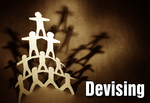.png)
Devising
By Corinna Rezzelle
13 Lesson Plans

The Dilemma Project
By Claire Broome
12 Lesson Plans

East Meets West: Theatre Traditions
By Marsha Walner
9 Lesson Plans
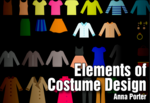
Elements of Costume Design *Hyperdoc
By Anna Porter
10 Lesson Plans
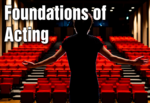
Foundations of Acting
By Annie Dragoo
7 Lesson Plans

Impowerment Improv
By Jennine Profeta
4 Lesson Plans
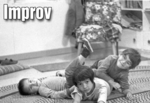
Improv
By Anna Porter
3 Lesson Plans
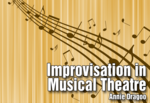
Improvisation in Musical Theatre
By Annie Dragoo
7 Lesson Plans
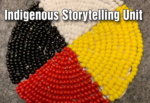
Indigenous Storytelling Unit
By Allison Green
3 Lesson Plans
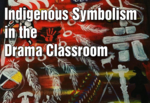
Indigenous Symbolism in the Drama Classroom
By Allison Green
4 Lesson Plans

Introduction to Film Analysis: Mise en scène
By Lindsay Price
7 Lesson Plans
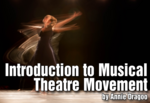
Introduction to Musical Theatre: Movement
By Annie Dragoo
9 Lesson Plans
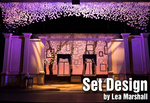
Introduction to Set Design *Hyperdoc
By Lea Marshall
2 Lesson Plans
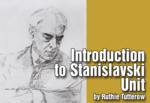
Introduction to Stanislavski
By Drama Teacher Academy
6 Lesson Plans
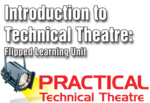
Introduction to Technical Theatre: Flipped Learning
By Lindsay Price
6 Lesson Plans
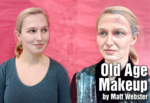
Old Age Makeup
By Matt Webster
8 Lesson Plans
NEW
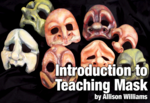
Introduction to Mask
By Allison Williams
7 Lesson Plans
NEW
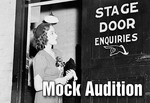
Mock Audition
By Lindsay Price
11 Lesson Plans
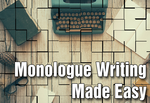
Monologue Writing Made Easy
By Matthew Banaszynski
7 Lesson Plans
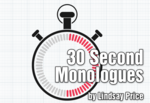
30 Second Monologues
By Lindsay Price
4 Lesson Plans
NEW
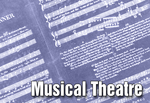
Musical Theatre
By Anna Porter
4 Lesson Plans
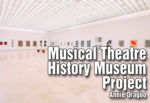
Musical Theatre History Museum Project
By Annie Dragoo
8 Lesson Plans
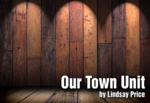
Our Town Unit
By Lindsay Price
8 Lesson Plans
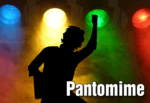
Pantomime
By Angel Borths
9 Lesson Plans

Pantomime
By Anna Porter
6 Lesson Plans
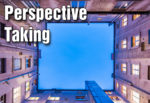
Perspective Taking
By Lindsay Price
5 Lesson Plans
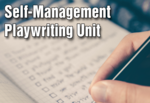
Self-Management Playwriting
By Lindsay Price
6 Lesson Plans
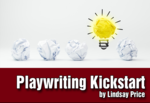
Playwriting Kickstart: Multi platform
By Lindsay Price
4 Lesson Plans
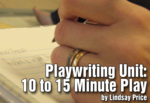
Playwriting Unit: 10 to 15 Minute Play
By Lindsay Price
4 Lesson Plans
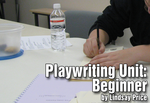
Playwriting Unit: Beginner
By Lindsay Price
11 Lesson Plans

Spoken Word Poetry
By Quincy Young
4 Lesson Plans
NEW
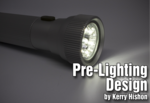
Pre-Lighting Design
By Kerry Hishon
7 Lesson Plans
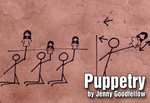
Puppetry
By Jenny Goodfellow
9 Lesson Plans
.png)
Realism and Naturalism
By Drama Teacher Academy
6 Lesson Plans
NEW
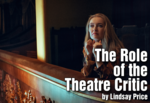
The Role of the Theatre Critic
By Lindsay Price
5 Lesson Plans
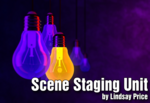
Scene Staging
By Lindsay Price
15 Lesson Plans
NEW
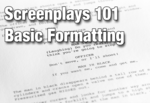
Screenplays 101: Basic Formatting Unit
By Nicholas Pappas
8 Lesson Plans
NEW
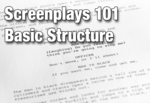
Screenplays 101: Basic Structure Unit
By Nicholas Pappas
5 Lesson Plans
NEW
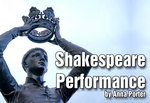
Shakespeare Performance
By Anna Porter
11 Lesson Plans
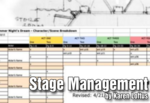
Stage Management
By Karen Loftus
10 Lesson Plans
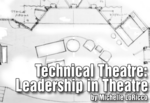
Technical Theatre: Leadership in Theatre
By Michelle LoRicco
6 Lesson Plans
NEW
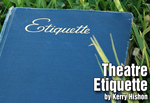
Theatre Etiquette
By Kerry Hishon
5 Lesson Plans
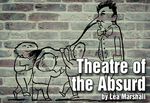
Theatre of the Absurd
By Lea Marshall
13 Lesson Plans

Theatre Radically Reimagined: Exploring Artaud, Grotowski, and Boal
By Ruthie Tutterow
2 Lesson Plans
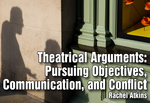.png)
Theatrical Arguments: Pursuing Objectives, Communication, and Conflict
By Rachel Atkins
3 Lesson Plans
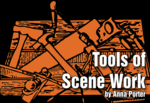
Tools of Scene Work
By Anna Porter
7 Lesson Plans
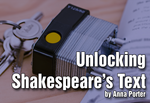
Unlocking Shakespeare's Text
By Anna Porter
5 Lesson Plans

Virtual Acting for the Camera
By Ruthie Tutterow
4 Lesson Plans
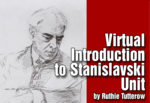
Virtual Introduction to Stanislavski
By Drama Teacher Academy
6 Lesson Plans
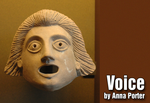
Voice
By Anna Porter
3 Lesson Plans

The Working Playwright *Hyperdoc
By Lindsay Price
Lesson Plans by Category
Acting
195 Lesson Plans
Analysis
43 Lesson Plans
Character Development
110 Lesson Plans
Commedia
7 Lesson Plans
Comprehension
14 Lesson Plans
Costumes
21 Lesson Plans
Directing
28 Lesson Plans
Emergency Lesson Plans
50 Lesson Plans
Genre
30 Lesson Plans
Group Activities
15 Lesson Plans
Improvisation
48 Lesson Plans
Movement
6 Lesson Plans
Musical Theatre
58 Lesson Plans
Playwriting
122 Lesson Plans
Reflection
9 Lesson Plans
Shakespeare
30 Lesson Plans
Stage Management & Technical Theatre
178 Lesson Plans
Tableau
4 Lesson Plans
Technique
11 Lesson Plans
The Basics
68 Lesson Plans
Theatre History
113 Lesson Plans
Voice
9 Lesson Plans